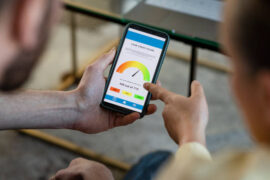This article may contain references to products or services from one or more of our advertisers or partners. We may receive compensation when you click on links to those products or services. Nonetheless, our opinions are our own.

Updated by Albert Fang
- VA Loan Program
- Down Payment And Assets
- Types of VA Loans
- VA Purchase Loan
- Military service history
- VA Loan Guaranty
- What is the VA funding fee?
- Credit Score
- Certificate of Eligibility (COE)
- How do VA loans perform in today’s mortgage and real estate environment?
- How many times can you use a VA loan?
- VA loan requirements and VA loan eligibility
- Property Requirements
- VA Cash-Out Refinance
- What are VA loan limits?
- How does a VA loan work?
- Best VA Loan Lenders Reviews
- Uniformed Services Earning VA Loan Benefits
- How to get a VA loan with bad credit
- Current VA mortgage rates
- How to apply for a VA home loan
- Recommended Reads
VA Loan Program
When it comes to shopping for a va loan then it’s important that you’re efficient with your time. As the CEO of Security America Mortgage, I value your time. Our loan officers are highly trained on all types of va loans. We are honored to serve those who served and we love the va home loan program. In this guide we will talk about why the va home loan might work for you.
Every va home loan program is unique. At Security America Mortgage we offer standard va loans, va construction loans and va renovation loans. Your earned va loan benefit comes with many advantages such as no private mortgage insurance, no down payment required, no va funding fee for qualifying disabled Veterans, credit score tolerance, a competitive interest rate, no va loan limit, and flexibility to use your va loan benefit in several ways.
Down Payment And Assets
No down payment is required on va loans but of course you have to have assets as reserves. Without any money in the bank you don’t have protection against tougher economic times, job loss, etc. Having money in the bank to cover some monthly payments is important and can be unique to every situation based on compensating factors. Your debt to income ratio helps determine if you qualify for a va loan. VA closing costs are needed as reserves but limited by the VA. They are often called non-allowables. When negotiating to buy a home we recomend a Military friendly Realtor who understands how to get a seller constribution to cover some of your closing costs. No down payment doesn’t mean no closing costs. Overall, the va loan doesn’t require a tremendous amount of assets because there is no minimum down payment requirement. If you’re buying a 300K home then it’s safe to say you should have some reserves of at least 9K minimum and more in some cases.
Types of VA Loans
Security America Mortgage offers many types of va loans. You’ll see more below about the VA purchase loan, the va cash out refinance, the VA construction loan, the VA renovation loan and the Native american direct loan, and interest rate reduction refinance loans. First we’ll start with the VA purchase loan below.
VA Purchase Loan
The VA home loan benefit made possible by the department of veterans affairs is an amazing benefit for our deserving Veterans who keep our country free. Start the VA loan process to use your va entitlement by choosing a trustworthy va mortgage lender that will help you navigate purchasing a home. It’s important to also work with a Military friendly realtor who won’t steer you away from the va loan because of lack of understanding. Prior to the great recession, the va loan benefit was very underutilized due to the fact that Veterans and civilians could get 100% financing quite easy with conventional loans. Government loans came back into play after the banking crisis ended and no longer were conventional loans so easy. VA loans and FHA loans became popular again.
Military service history
Military service history refers to an individual’s record of service in the armed forces. This record includes information such as dates of service, rank, awards and decorations, duty stations, and other details related to the individual’s military service.
A DD214, also known as a Certificate of Release or Discharge from Active Duty, is a document issued by the Department of Defense to service members who have completed their military service, been honorably discharged, or retired from the armed forces.
The DD214 contains important information about the service member’s military service, including their dates of service, rank at discharge, awards and decorations received, military job or specialty, and any disciplinary actions taken against them. The DD214 is considered the most important document a veteran has, as it verifies their military service and can be used to access a variety of benefits and services, including veterans benefits, GI Bill benefits, and VA home loan benefits.
VA Loan Guaranty
A VA loan guaranty is a benefit provided by the Department of Veterans Affairs (VA) to eligible veterans, active-duty service members, and surviving spouses. This benefit allows them to obtain a mortgage loan with favorable terms and conditions, including no down payment and no private mortgage insurance requirement.
When a borrower obtains a VA loan, the VA guarantees a portion of the loan amount to the lender. This guarantee serves as a form of insurance for the lender, which encourages them to offer more favorable terms to the borrower, such as lower interest rates.
If the borrower defaults on the loan, the VA will pay the lender a portion of the outstanding balance to help mitigate their losses. This VA guaranty also helps to reduce the financial risk for lenders and makes it easier for veterans to obtain a mortgage loan with competitive terms.
What is the VA funding fee?
The VA funding fee is a one-time fee that the Department of Veterans Affairs charges to borrowers who obtain a VA home loan. The fee is a percentage of the total loan amount, and the amount of the fee depends on a variety of factors, including the type of loan, the size of the down payment, and whether the borrower has obtained a VA loan in the past.
The purpose of the funding fee is to help offset the cost of administering the VA home loan program and to reduce the overall cost to taxpayers. The fee can be financed as part of the loan, meaning that borrowers don’t have to pay it out of pocket upfront. However, financing the fee will increase the overall cost of the loan.
It’s worth noting that certain borrowers may be exempt from paying the VA funding fee, such as veterans who have a service-related disability or who are eligible for VA compensation. Additionally, surviving spouses of veterans who died in service or as a result of a service-connected disability may also be exempt from paying the fee.
Credit Score
The Department of Veterans Affairs (VA) does not have a minimum credit score requirement for VA home loans. However, most lenders who provide VA loans typically require a credit score of at least 620 or higher. This is because lenders want to ensure that borrowers are able to repay the loan, and a higher credit score is generally seen as an indication of a borrower’s creditworthiness.
It’s important to note that while there is no official minimum credit score requirement for VA loans, lenders are still free to set their own credit score standards. Some lenders may require a higher credit score, while others may be willing to work with borrowers who have lower credit scores, depending on their overall financial profile.
In addition to credit score, lenders will also consider other factors when determining whether to approve a VA loan, such as the borrower’s income, employment history, debt-to-income ratio, and other credit-related factors. Ultimately, the lender will use a combination of these factors to determine whether the borrower is eligible for a VA loan and what terms and conditions will apply.
Certificate of Eligibility (COE)
A Certificate of Eligibility (COE) is an official document issued by the Department of Veterans Affairs (VA) that verifies a borrower’s eligibility for a VA home loan. The COE is an important document that lenders require in order to process and approve a VA loan application.
To obtain a COE, the borrower must meet certain eligibility criteria, which generally include having served on active duty in the military, being a veteran who was honorably discharged, or being a surviving spouse of a veteran who died in service or as a result of a service-connected disability.
The COE contains information about the borrower’s length and character of service, as well as their entitlement to VA home loan benefits. The COE also specifies the type of loan for which the borrower is eligible, such as a VA purchase loan, VA cash-out refinance loan, or VA Interest Rate Reduction Refinance Loan (IRRRL).
There are several ways to obtain a COE and Security America Mortgage has direct access to the VA portal so that you can obtain a COE rapidly.
How do VA loans perform in today’s mortgage and real estate environment?
VA home loans have remained a popular option for eligible borrowers in today’s mortgage and real estate environment, particularly due to their flexible eligibility requirements and competitive interest rates.
One advantage of VA loans is that they typically require no down payment, which can make them a more accessible option for borrowers who may not have a large amount of savings to put towards a home purchase. Additionally, VA loans do not require private mortgage insurance (PMI), which can result in lower monthly mortgage payments compared to other loan types.
In terms of interest rates, VA loans have historically offered lower interest rates than many other loan types, which can help borrowers save money over the life of the loan.
However, like all loan types, VA loans are subject to market conditions and interest rate fluctuations, which can impact their performance in the current real estate environment. In some areas, particularly in areas with high demand and low inventory, home prices may be rising rapidly, which can make it more challenging for buyers to find affordable properties. This can be particularly challenging for VA borrowers who may be limited in their ability to put down a large down payment.
Overall, VA loans remain a viable option for eligible borrowers in today’s mortgage and real estate environment, but borrowers should carefully consider their financial situation and compare loan options to ensure they are getting the best possible deal.
How many times can you use a VA loan?
There is no limit to the number of times you can use a VA loan to purchase or refinance a home. As long as you meet the VA’s eligibility requirements and the property you are purchasing or refinancing is eligible for a VA loan, you can use a VA loan multiple times throughout your lifetime.
However, there are some restrictions on how much you can borrow with a VA loan, which may impact your ability to use a VA loan multiple times. The VA sets limits on the amount of money it will guarantee for each loan, and these limits can vary depending on the location of the property and the number of times you have used a VA loan in the past.
In general, the VA loan limit for a single-family home is $548,250 in most parts of the country, but this limit can be higher in areas with higher housing costs. If you have previously used a VA loan, your remaining entitlement may also impact the amount you can borrow with your next VA loan.
It’s also important to note that if you have an existing VA loan, you may need to sell or refinance the property before you can use another VA loan to purchase a new property. The VA typically requires borrowers to sell or refinance their existing VA loan before they can obtain another VA loan for a new property.
VA loan requirements and VA loan eligibility
To be eligible for a VA loan, you must meet certain requirements established by the Department of Veterans Affairs (VA). These requirements include:
- Eligibility: You must be a veteran who served on active duty in the Army, Navy, Air Force, Marine Corps, or Coast Guard (or in the National Guard or Reserves), and have received a discharge other than dishonorable. Surviving spouses of veterans who died in service or as a result of a service-connected disability may also be eligible.
- Income: You must have a steady income and be able to afford the monthly mortgage payments. The VA does not set a minimum income requirement, but lenders may have their own guidelines.
- Credit Score: While the VA does not require a minimum credit score, most lenders will have their own requirements. Generally, a credit score of 620 or higher is preferred.
- Property Requirements: The property you are purchasing or refinancing must meet certain requirements, such as being in good condition and being used as your primary residence.
- Entitlement: You must have sufficient entitlement, which is the amount of money the VA guarantees for your loan. The amount of entitlement you have depends on your military service, and the VA determines your entitlement based on your Certificate of Eligibility (COE).
- Occupancy: You must intend to occupy the property as your primary residence within a reasonable period of time after closing the loan.
It’s important to note that while the VA sets basic eligibility requirements for VA loans, lenders may have additional requirements or guidelines that borrowers must meet in order to be approved for a loan.
Property Requirements
To be eligible for a VA loan, the property you are purchasing or refinancing must meet certain requirements established by the Department of Veterans Affairs (VA). These requirements include:
- Occupancy: The property must be used as your primary residence. VA loans cannot be used to purchase investment properties or vacation homes.
- Property Type: The property must be a residential property, which includes single-family homes, townhouses, and condominiums. Multi-unit properties such as duplexes and triplexes may also be eligible, provided you live in one of the units.
- Property Condition: The property must be in good condition and meet certain minimum property standards established by the VA. These standards are designed to ensure the property is safe, structurally sound, and sanitary.
- Appraisal: The property must be appraised by a VA-approved appraiser to determine its value and ensure it meets the VA’s minimum property standards.
- Location: The property must be located in the United States or one of its territories, and must be located in an area where the VA is authorized to guarantee loans.
- Title: The property must have clear title, meaning there are no liens or other issues that could impact your ownership of the property.
It’s important to note that while the VA sets basic property requirements for VA loans, lenders may have additional requirements or guidelines that borrowers must meet in order to be approved for a loan. Additionally, if you are purchasing a condominium, there may be additional requirements related to the condominium project itself, such as the percentage of units that are owner-occupied.
VA Cash-Out Refinance
A VA Cash-Out Refinance is a type of VA loan that allows you to refinance your existing mortgage and take out cash from the equity in your home at the same time. The cash you receive can be used for any purpose, such as home improvements, debt consolidation, or other expenses.
To be eligible for a VA Cash-Out Refinance, you must have sufficient equity in your home, and the new loan must be used to pay off your existing mortgage. You must also meet the VA’s eligibility requirements, including having served on active duty in the military and receiving an honorable discharge.
VA Cash-Out Refinances aren’t available in Texas, but they are available in other states. Conventional refinance cash out options are available. However, there are some restrictions on the amount of cash you can receive, which may vary depending on the value of your home and the amount of equity you have.
It’s important to note that while a VA Cash-Out Refinance can be a useful tool for accessing the equity in your home, it also increases your mortgage balance and monthly payments. As with any financial decision, it’s important to carefully consider your options and speak with a trusted lender or financial advisor before proceeding.
What are VA loan limits?
VA loan limits are the maximum amount of money that the Department of Veterans Affairs (VA) will guarantee on a VA loan. These limits are based on the county where the property is located and are intended to help ensure that veterans can purchase homes in areas where housing prices may be higher.
VA loan limits vary by county and are determined based on the “conforming loan limit” established by the Federal Housing Finance Agency (FHFA) for conventional mortgages. For 2022, the VA loan limits for most counties in the United States range from $548,250 to $970,800, with higher limits for certain high-cost areas.
It’s important to note that VA loan limits do not represent the maximum amount that a borrower can borrow on a VA loan. Instead, they represent the maximum amount of money that the VA will guarantee on a loan. Borrowers may still be able to obtain a VA loan that exceeds the county loan limit, but they may need to make a down payment on the amount that exceeds the limit.
Additionally, borrowers who have previously used their VA loan entitlement may have lower loan limits, based on the amount of their remaining entitlement.
Are there VA loan limits for Veterans with full entitlement?
Yes, there are still VA loan limits for veterans with full entitlement but the VA does not impose a limit on the amount that they can borrow. However, the loan amount may still be limited by the lender’s underwriting requirements, the borrower’s income and creditworthiness, and the appraised value of the property. In some cases, lenders may also impose their own limits on the amount that can be borrowed, even if the veteran has full entitlement.
Additionally, borrowing too much can lead to financial strain, so it’s important to carefully consider your financial situation and your ability to repay any loans before proceeding.
How does a VA loan work?
A VA loan is a type of mortgage loan that is guaranteed by the Department of Veterans Affairs (VA). The VA loan program was designed to help veterans, active-duty service members, and their families purchase homes with favorable terms and conditions.
Here’s how a VA loan works:
- Determine eligibility: To be eligible for a VA loan, you must be a veteran, active-duty service member, or surviving spouse of a veteran who died in service or as a result of a service-related disability. You must also meet certain credit and income requirements.
- Obtain a Certificate of Eligibility: To apply for a VA loan, you will need to obtain a Certificate of Eligibility (COE) from the VA. This document verifies your eligibility for the VA loan program and shows the amount of your VA entitlement.
- Find a lender: Once you have your COE, you can start shopping for a lender who participates in the VA loan program. Your lender will work with you to determine the loan amount and terms that best suit your needs.
- Apply for the loan: To apply for a VA loan, you will need to provide your lender with various financial and personal information, including your income, employment history, credit score, and debt obligations.
- Underwriting and approval: After you apply for the loan, your lender will review your application and determine whether you meet their underwriting requirements. If you are approved, you will receive a loan commitment letter from the lender.
- Closing: Once your loan is approved, you will need to attend a closing meeting to sign the final documents and pay any closing costs. At closing, you will also receive the keys to your new home.
- Repayment: Like any other mortgage loan, a VA loan requires you to make regular payments to repay the loan over time. However, VA loans typically offer more favorable terms and conditions than other types of mortgage loans, including lower interest rates, no down payment requirement, and no private mortgage insurance (PMI) requirement.
Best VA Loan Lenders Reviews
Security America Mortgage has nearly a 5 rating with Google. There are several good va lenders but they don’t provide the same level of personalized service. At Security America Mortgage you can count on your needs being placed first.
Uniformed Services Earning VA Loan Benefits
“Uniformed Services Earning VA Loan Benefits” refers to the process by which an active-duty service member, National Guard or Reserve member, or veteran accumulates eligibility for a VA home loan. Eligibility is based on a minimum period of active duty or other service, as well as other factors such as honorable discharge and character of service.
The amount of eligibility that a service member or veteran can earn depends on several factors, including length of service, type of service, and whether the individual has used any of their eligibility in the past. The VA will issue a Certificate of Eligibility (COE) that specifies the amount of eligibility that a borrower has earned.
The VA loan benefits earned through uniformed service can be used to purchase a primary residence, refinance an existing mortgage, or make home improvements. The VA guarantees a portion of the loan to the lender, which allows the borrower to obtain favorable terms and conditions, such as no down payment requirement, no private mortgage insurance (PMI), and competitive interest rates.
It’s important to note that earning VA loan benefits does not guarantee loan approval, and borrowers will still need to meet certain credit and income requirements to be approved for a VA loan. Additionally, VA loan benefits are not a one-time benefit; eligible borrowers can use their VA loan benefits multiple times throughout their lifetime, as long as they meet the eligibility requirements.
How to get a VA loan with bad credit
If you have bad credit you won’t be able to get a va loan because you’ll find it impossible to get a lender to approve it. Just because the VA doesn’t have a minimum credit score requirement doesn’t mean your lender doesn’t either.
Current VA mortgage rates
Get current rates by calling SecurityAmericaMortgage.com
How to apply for a VA home loan
Go to Security America Mortgage and apply with our easy loan application!

Reviewed and edited by Albert Fang.
See a typo or want to suggest an edit/revision to the content? Use the contact us form to provide feedback.
At FangWallet, we value editorial integrity and open collaboration in curating quality content for readers to enjoy. Much appreciated for the assist.
Did you like our article and find it insightful? We encourage sharing the article link with family and friends to benefit as well - better yet, sharing on social media. Thank you for the support! 🍉
Article Title: VA Loans: The Complete Guide by Security America Mortgage
https://fangwallet.com/2023/04/17/va-loans-the-complete-guide-by-security-america-mortgage/The FangWallet Promise
FangWallet is an editorially independent resource - founded on breaking down challenging financial concepts for anyone to understand since 2014. While we adhere to editorial integrity, note that this post may contain references to products from our partners.
The FangWallet promise is always to have your best interest in mind and be transparent and honest about the financial picture.
Become an Insider

Subscribe to get a free daily budget planner printable to help get your money on track!
Make passive money the right way. No spam.
Editorial Disclaimer: The editorial content on this page is not provided by any of the companies mentioned. The opinions expressed here are the author's alone.
The content of this website is for informational purposes only and does not represent investment advice, or an offer or solicitation to buy or sell any security, investment, or product. Investors are encouraged to do their own due diligence, and, if necessary, consult professional advising before making any investment decisions. Investing involves a high degree of risk, and financial losses may occur including the potential loss of principal.
Source Citation References:
+ Inspo












































